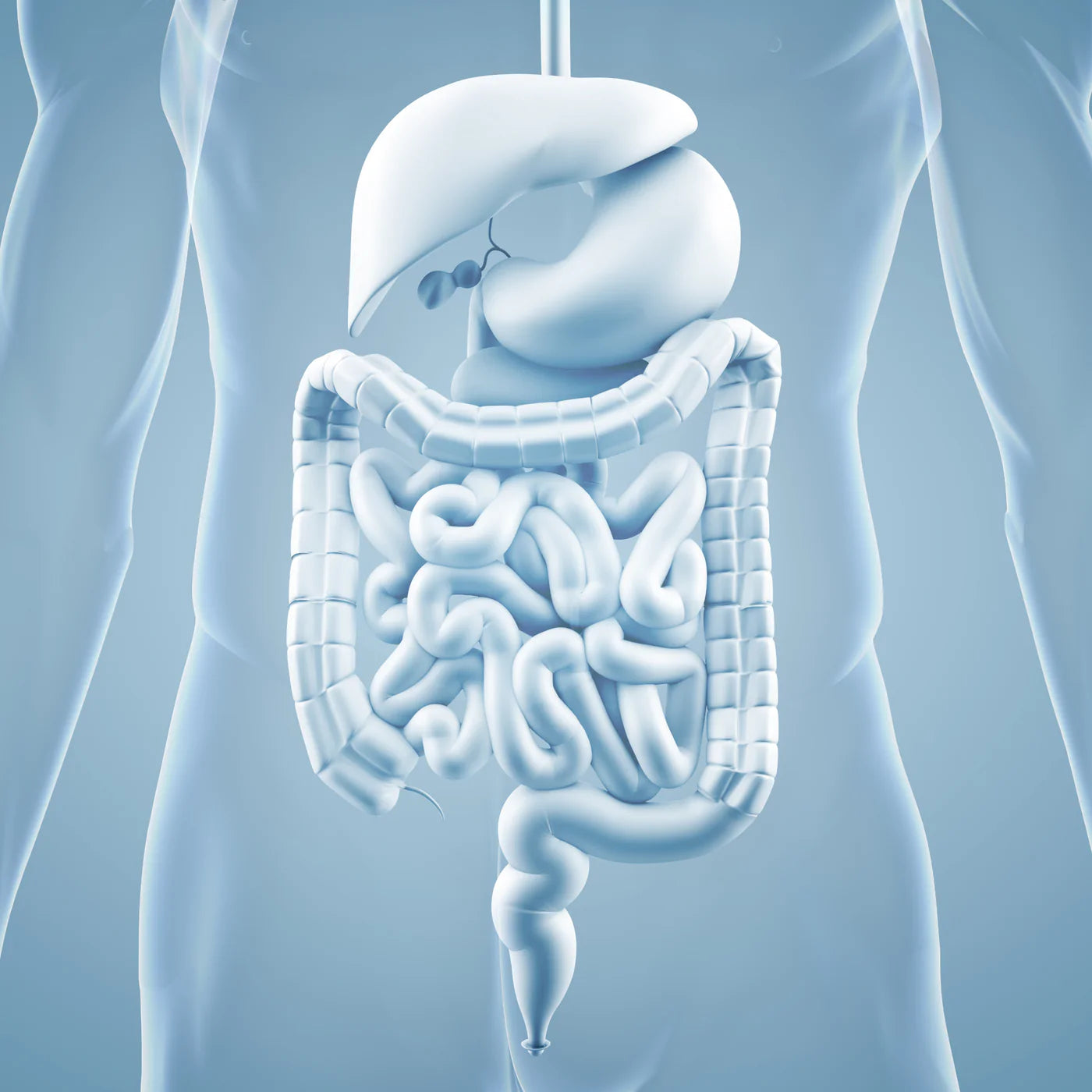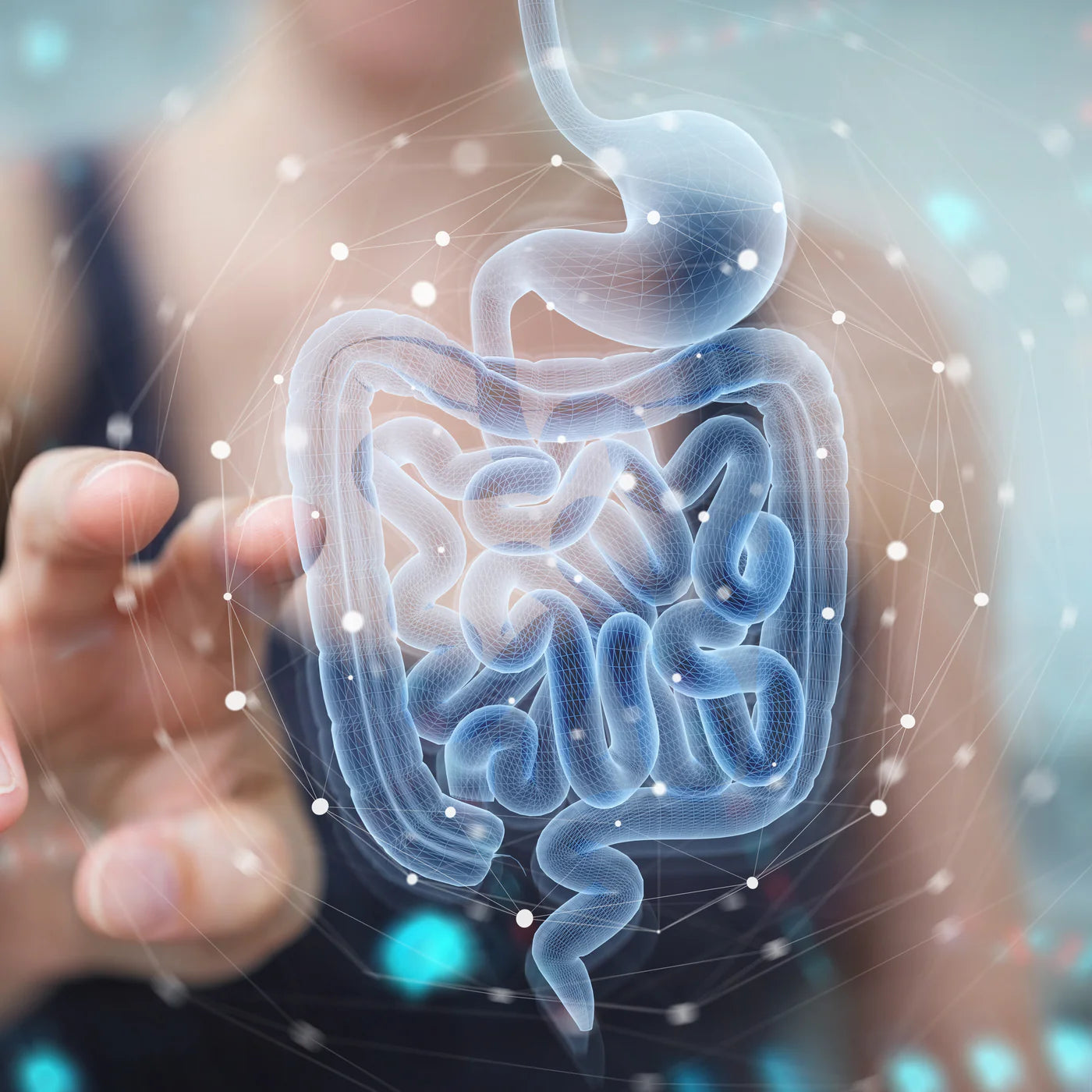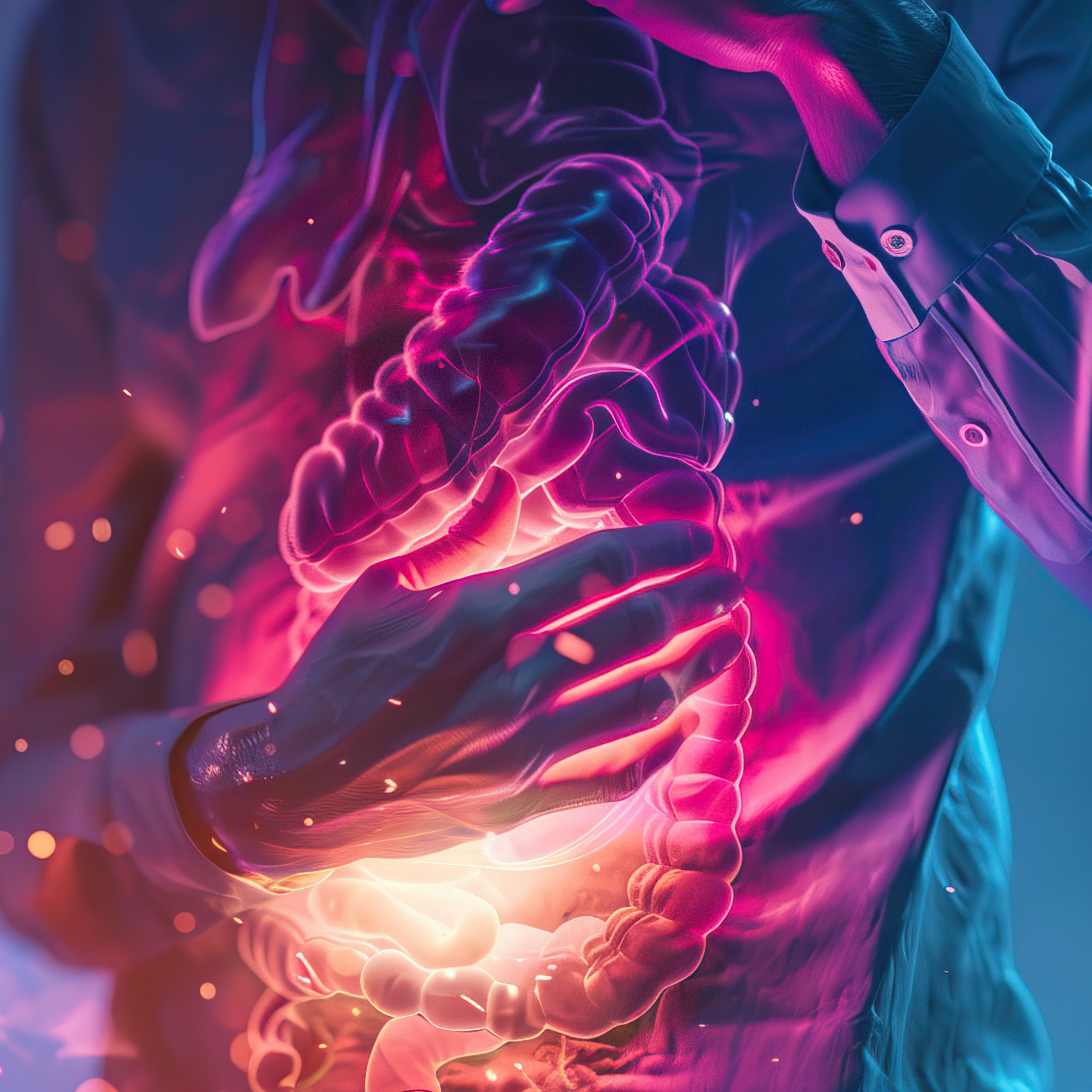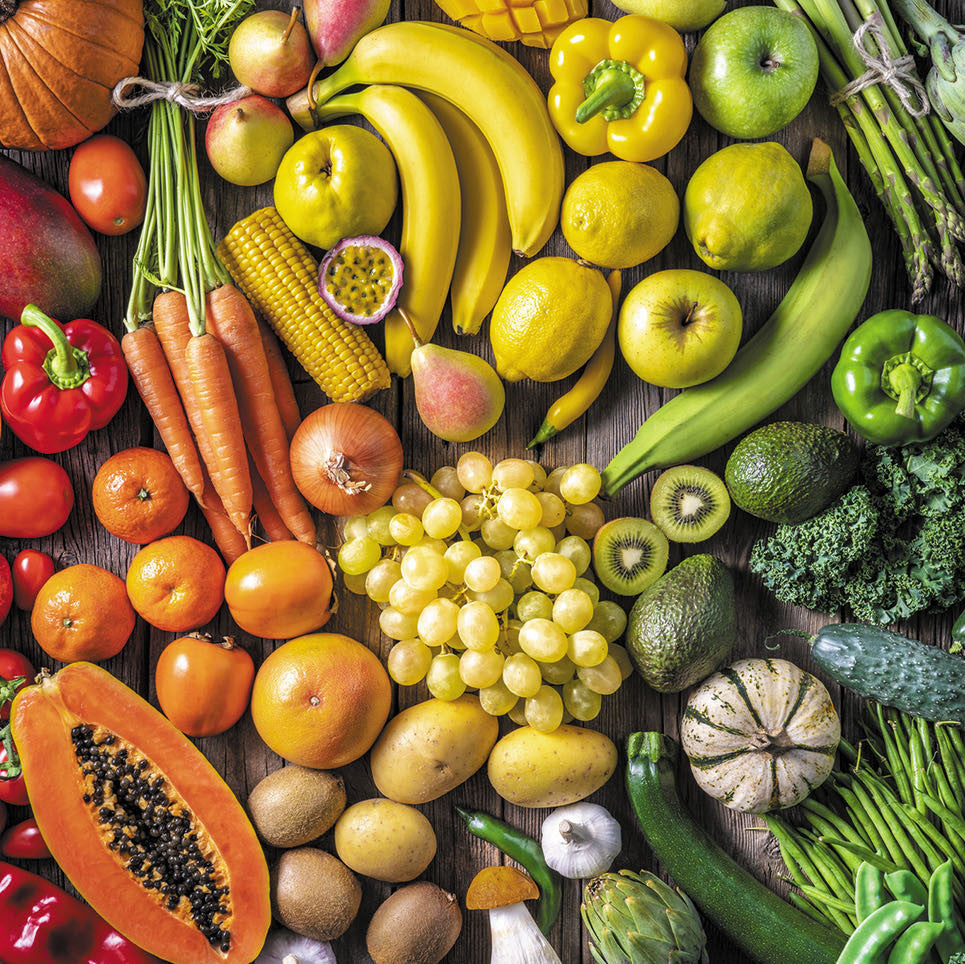Welcome to Unit 2
Constipation is a complex issue influenced by multiple factors. In this unit, we’ll delve deeper into the causes behind constipation, backed by scientific studies. By the end, you’ll understand how lifestyle, diet, and other elements can contribute to digestive problems and learn how to address these underlying causes.
1. Low Fibre Intake
Fibre is one of the most important factors in maintaining healthy bowel movements, yet the average person only consumes around 15 grams of fibre per day, significantly lower than the recommended 25-30 grams.
 Incorporating fibre-rich foods such as fruits, vegetables, beans, and whole grains can help maintain healthy bowel movements.
Incorporating fibre-rich foods such as fruits, vegetables, beans, and whole grains can help maintain healthy bowel movements.
Types of Fibre:
- Soluble Fibre: This dissolves in water and forms a gel-like substance in the intestines. It slows digestion and helps regulate blood sugar. Soluble fibre also softens stools, making them easier to pass.
- Insoluble Fibre: This does not dissolve in water and adds bulk to the stool. By doing so, it speeds up the passage of material through the digestive system.
A 2015 review published in the World Journal of Gastroenterology concluded that dietary fibre significantly increases stool frequency in patients with constipation. The study suggested that soluble fibre, in particular, helps soften stool and ease its passage through the intestines.
Fibre-Rich Foods:
- Soluble Fibre: Found in oats, beans, lentils, apples, and citrus fruits.
- Insoluble Fibre: Present in whole grains, nuts, seeds, and vegetables like broccoli and carrots.
Further Reading:
2. Dehydration
A healthy stool is 75% water. This is why proper hydration plays a crucial role in bowel regularity. When your body is dehydrated, the colon absorbs extra water from the stool, which leads to hard, dry stools. This process can significantly contribute to constipation.
How Water Affects the Gut:
Water is absorbed in the colon to help form stool. When there’s insufficient hydration, the body pulls even more water from the digestive contents, making stool harder to pass. Studies show that increasing water intake can improve stool consistency and promote regular bowel movements.

A 2008 study published in the European Journal of Clinical Nutrition showed that increased fluid intake, particularly in combination with a high-fibre diet, resulted in significantly improved bowel movements among participants suffering from constipation.
Hydration Recommendations:
Most adults should aim for 2-3 litres of water per day, though the amount can vary based on activity level, diet, and climate. Including foods rich in water, like cucumbers and melons, can also help.
3. Lack of Physical Activity
Physical inactivity is a known risk factor for constipation. Exercise stimulates intestinal contractions, known as peristalsis, which help move food and waste through the digestive system.
The Science of Peristalsis and Movement:
A 2011 study published in the American Journal of Gastroenterology found that regular physical activity significantly improves gastrointestinal motility, helping prevent constipation. The researchers discovered that light aerobic exercise, such as walking, activates the muscles of the intestines, promoting quicker and more efficient bowel movements .
Regular physical activity can reduce the time it takes for food to pass through the large intestine, reducing the amount of water absorbed from the stool. This makes the stool softer and easier to pass.
Exercise Recommendations:
- Just do what you can! Any movement is better than no movement.
- Moderate-intensity aerobic activity, such as walking or cycling, for 20-30 minutes every day.
- Strength training exercises can also stimulate the muscles in the abdomen, aiding digestion.
Further Reading: Read more about the benefits of exercise on gut health in this article.

Regular physical activity, such as walking, can stimulate the digestive system and reduce constipation.
4. Stress and Routine Changes
The gut-brain axis refers to the complex communication system between the digestive system and the brain. When stressed, your body can trigger changes in digestion, slowing down peristalsis and leading to constipation. This connection explains why people under stress often report changes in bowel habits.
The Science Behind Stress and Digestion:
Stress stimulates the sympathetic nervous system, which can slow down the gut’s normal processes, reducing intestinal motility. A 2015 study published in the Journal of Neurogastroenterology and Motility showed that individuals with higher levels of stress often experience irritable bowel syndrome (IBS), which includes constipation as a symptom .

Stress can negatively impact the gut and slow down digestion, contributing to constipation.
Routine changes, such as travel, diet changes, or sleep disturbances, can also disrupt bowel regularity. Travelling, in particular, is often associated with constipation, likely due to dehydration, diet changes, and inactivity during flights or car trips.
Managing Stress for Digestive Health:
- Mindfulness and meditation practices have been shown to positively affect digestive health.
- Yoga and deep breathing exercises may also stimulate the parasympathetic nervous system, promoting healthy digestion.
5. Certain Medications
Several medications are known to cause constipation as a side effect. These include:
- Opioid pain medications.
- Iron supplements.
- Antacids containing calcium or aluminium.
- Antidepressants that impact neurotransmitters regulating digestion.
Opioid-Induced Constipation:
Opioids slow down the gut’s normal function, decreasing motility and increasing water absorption from the stool. A 2016 study published in Pain journal found that nearly 40% of patients on long-term opioid therapy experienced severe constipation .

Medications like opioids, iron supplements, and antidepressants are common culprits that may cause constipation.
If you suspect that your medication is causing constipation, talk to your healthcare provider about alternatives or possible remedies, such as stool softeners or fibre supplements.
Actionable Task: Identify Your Triggers
Today, reflect on the potential causes of constipation in your daily life. Consider the following questions:
- Fibre: Are you consuming enough fibre from whole grains, fruits, and vegetables?
- Hydration: Are you drinking at least 2-3 litres of water daily?
- Exercise: Are you engaging in regular physical activity, such as walking or light exercise, for at least 150 minutes per week?
- Stress: Are you under stress or have you experienced recent changes in routine (travel, diet)?
- Medications: Could any medications you're taking contribute to constipation?
Take note of any areas for improvement and start planning small changes to address them.
Looking Ahead
In Unit 3, we’ll dive into natural strategies to relieve constipation. We’ll discuss how small changes in diet, hydration, and supplements can improve digestion and maintain regular bowel movements.
Further Reading:
- Fibre and gut health: Learn more about fibre’s role in digestive health.
- Hydration and constipation: Read more on how dehydration can lead to constipation.
- Exercise and digestion: Study how physical activity supports gut function.
















